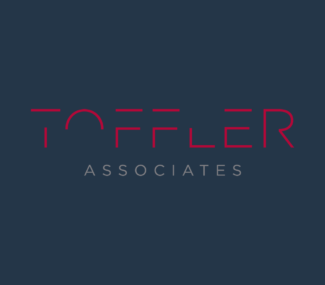The Path to Your Organization’s Success is Paved with Failure

In Plato’s Meno, the character Socrates raises the question of why knowledge is more valuable than a strongly held conviction or ‘true’ belief. He relates an anecdote of a traveler navigating the road to Larissa. When the traveler comes across a fork in the road, he can either know that Larissa lies to the road on the left or he can have a ‘true’ belief that he’ll reach the city by choosing to go left.
In both cases, the traveler reaches Larissa, ultimately raising the question known as the Meno Problem. Which is more valuable to deciding the correct way – knowledge or belief?
Philosophers have spent millennia analyzing this and other basic questions like the definition of “knowledge” to no avail. Yet the concept behind the question has immediate applicability in our current realm of organizational transformation. It informs questions like, “what is knowledge for an organization?” or, “what can organizations do to reveal and capitalize on knowledge?”
To answer questions like these, we need to first establish a common understanding of knowledge. Without indulging too deeply in a debate on the definition of knowledge, it can be sufficed to say that knowledge essentially is:
Awareness gained through experience which, when tested, results in the same outcome with certainty, or a perfect probability.
The challenges in this explanation are that the future is inherently unknowable and change is ever-present. We simply cannot foresee with certainty what the world will be like tomorrow, let alone years down the road. Similarly, we also cannot predict how employees will react to a policy or institutional change.
As such, this definition of knowledge begets two additional challenges related to the probability of an outcome.
-
-
- Because certainty can never be guaranteed, can anything actually be known – or do we take action based on a ‘true’ belief?
- If we decide to operate on a high probability of outcome, at what point does the true belief in the outcome gain enough certainty to become knowledge?
-
The second question has no answer. (The level of certainty required is based on an individual’s level of risk aversion.) But the answer to the first question is revealed by how someone acts in response to the second. That is, if the outcome has a non-certain probability, all actions inherently are based on ‘true’ belief.
Confident Decision-Making in a Changing Business Climate
This thought experiment has implications around how organizations make decisions about operations, investments, and financing in our ever-changing modern environment. Because there are no certain outcomes and the operational situation is in constant flux, organizations essentially are forced to make choices based solely on a strong belief in an expected outcome.
Interestingly, this holds true even in the presence of big data and massive business intelligence initiatives. The presence of analytics does not, in and of itself, produce any real answers. At the end of the day, business is “run on a hunch.”
The Outcomes of Organizational Choices
When seeking to transform an organization to a new operational environment, businesses are faced with two choices:
-
-
- Maintain the status quo
- Make an organizational change decision based on a ‘true’ belief about the outcome
-
In either case, success is not certain. A probability of failure exists. Due to that probability and the fact that decisions made are based on ‘true’ beliefs rather than knowledge, it appears that transformation success or failure comes down to a matter of luck. Perhaps more accurately, it comes down to a random distribution of outcomes along a spectrum ranging from complete failure to resounding success.
The Upside of Failure
Actual organizational knowledge appears to be unobtainable. For that reason, pure knowledge is largely devoid of value to corporate decision-makers. But the situation is not entirely hopeless. Regardless of the result of an organizational transformation, the process through which people gained a deeper understanding of their situation can strengthen their ‘true’ belief in the steps they’ve taken. Those processes then become more important and valuable.
Experiencing failure has value in what it can teach us. By “failing right,” an organization gains knowledge that refines and strengthens their ‘true’ belief systems. By revisiting and changing the probability of outcome inherent to the revised ‘true’ belief, the organization can try again to implement transformation in a different way.
Because there is always an element of luck in any decision, it’s absolutely certain that some actions will fail despite steps to mitigate risk. As we’ve said, however, failing creates value by clarifying what does and does not work. Phrases like “fail forward,” “fail fast,” and “positive failure” actually encourage it, provided it offers the chance to strengthen the organization or prepare for a better outcome.
Learning and Leading Through Failure
A willingness to learn and more importantly lead through failure is the fundamental underpinning of innovation. Our experience over the past 20 years in helping commercial and Federal organizations through change and innovation has proved this point time and time again.
A culture that promotes failure and demonstrates that it trusts its employees to try and fail ultimately equips the organization for success in future endeavors. In our current environment of globalization and rapid transformation, it is imperative for leaders to imagine the possible outcomes of change and to support failures as steps toward positive outcomes.
Robert F. Kennedy once said, “Only those who dare to fail greatly can ever achieve greatly.” Toffler Associates can help you dare greatly.
It’s time to embrace the unknown and to pursue outcomes knowing that failure is certain.
{{cta(‘befa9ff3-80a5-4a6c-b483-9daadb37b099’)}}

 About the Authors
About the Authors